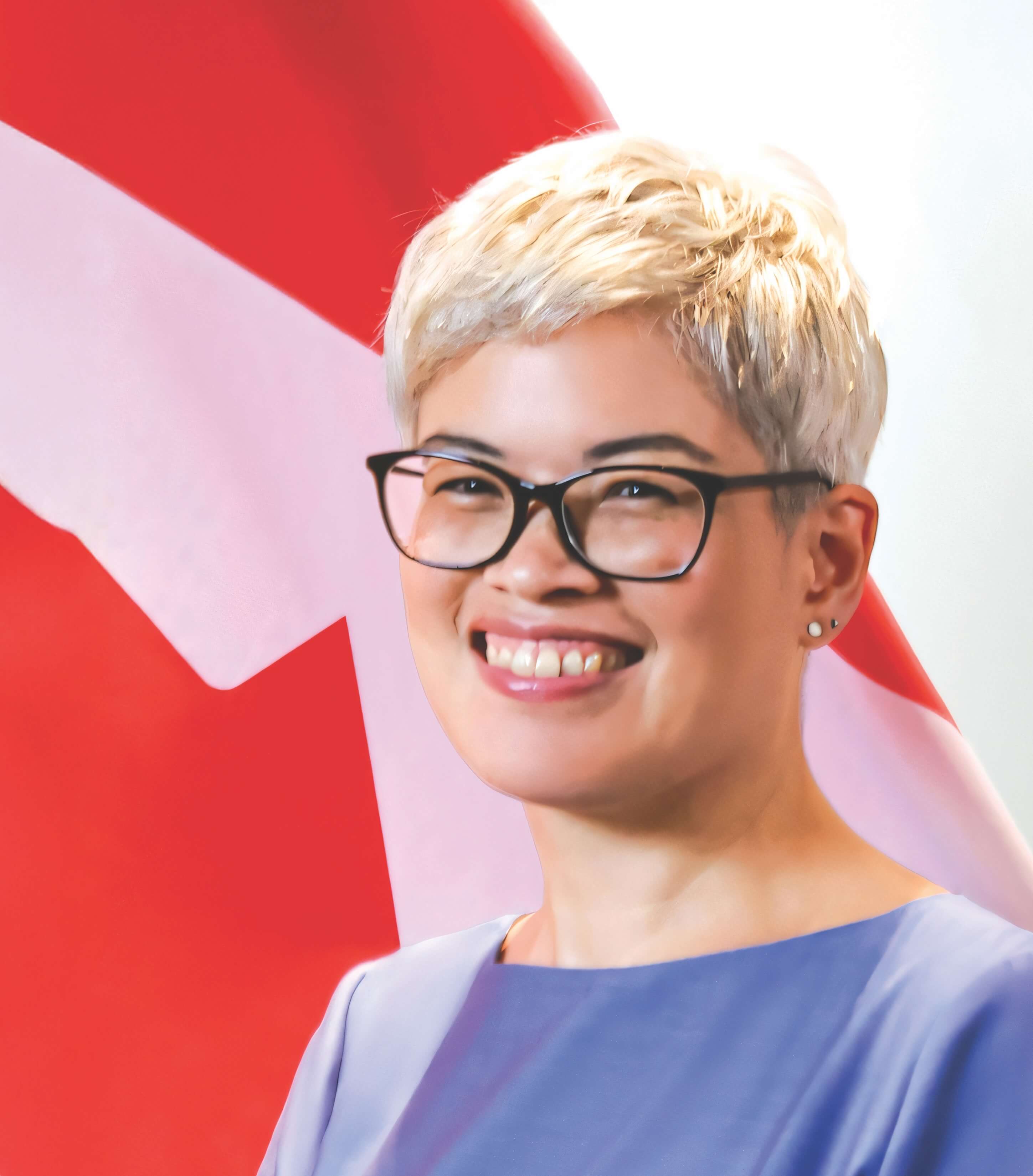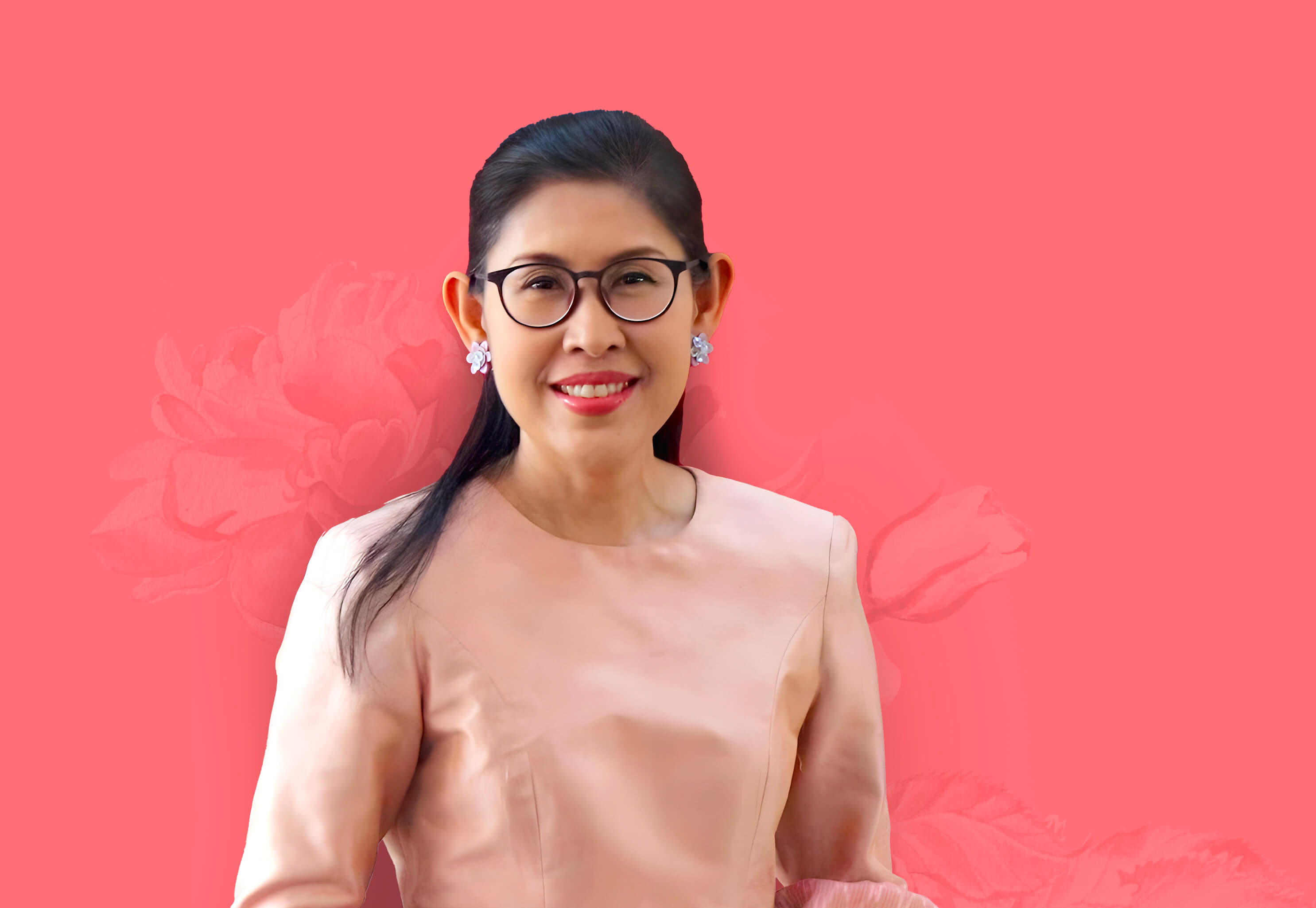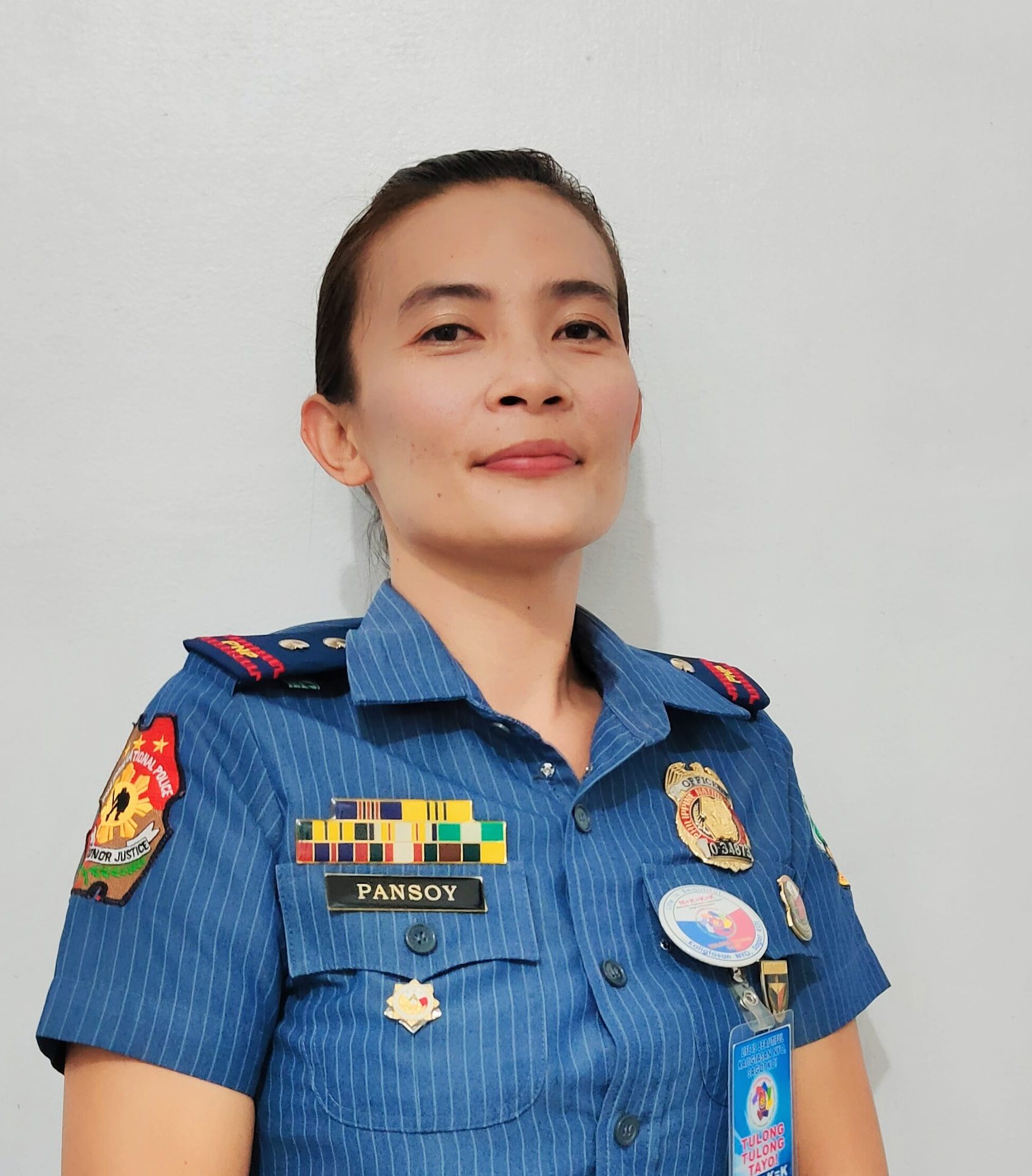


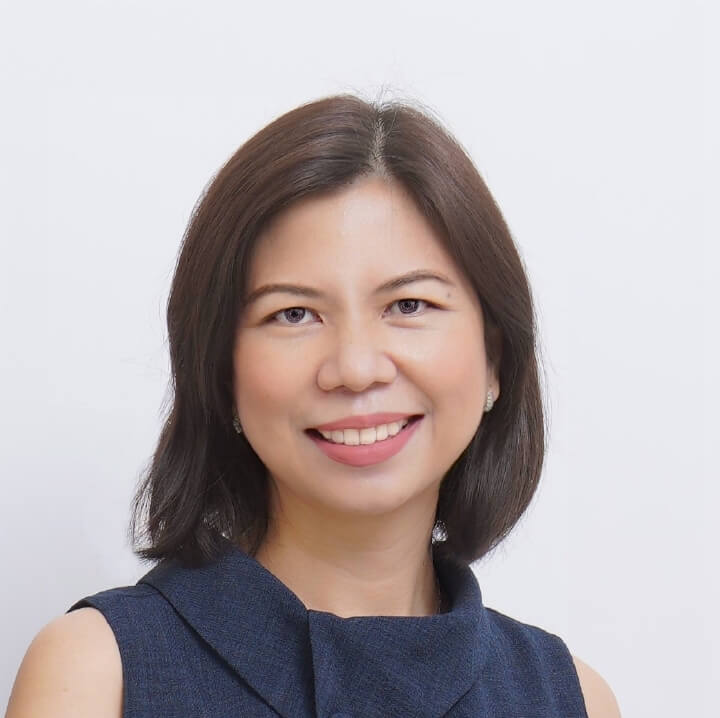
Shiela May Pansoy, a 39-year-old native of Davao del Sur, is one of the 37,000 women in the Philippine police force.
Shiela May dreamt of becoming a policewoman at an early age. Having experienced abuse first-hand as a child, she wanted to break the cycle of violence in her family and help others in a similar situation.
She recalled asking the police for help after a particularly violent incident but not being taken seriously.
“I ran all the way to the police station, terrified and desperate for help. But when I got there, none of the police officers gave me the time of day,” she said.
Maybe it’s because I was a kid, or maybe because the laws protecting women and children were not available then. At that moment, I told myself, when I become a police officer, all children who set foot in the station will be given the attention they deserve.”
Shiela May said she wanted to be the kind of police officer that she needed when she was a child.
“My father’s way of disciplining us went too far. He had a vicious temper,” she recalled. “If I had an advocate when I was a child, my family’s suffering wouldn’t have been prolonged.”
Shiela May said learning about her father’s own brutal upbringing helped her gain empathy towards her father. Her training in psychology and her father’s transformation later in life also helped her come to terms with her difficult childhood.
In 2006, Shiela May fulfilled her dream of becoming a police officer after completing police training in Mintal, Davao City. As a young police officer, she was assigned to the women and children’s protection desk, where she investigated cases of violence against women and children.
With her past experience, Shiela May said it was agonising to hear the stories of victim-survivors. “I struggled for a year or two because I absorbed and brought home their traumas. Sometimes I couldn’t sleep thinking about the survivors, especially those who were raped. But it also motivated me, made me rush to the station to complete my work and help bring the perpetrators to justice,” she said.
Shiela May realised that women- and children-survivors need holistic intervention. Thus, she activated the inter-agency referral system and worked in tandem with the municipality’s social welfare and health units and barangay [village] officials for the quick and coordinated provision of services.
She also mentored and strengthened the capacities of women and children’s protection desk officers to ensure the continuity of support. As a result, by the time Shiela May left her post, hundreds of cases had been filed, compared to only a few when she first started.
Shiela May’s exceptional efforts to keep women and children in the community safe earned her a Metrobank Outstanding Filipino Award in 2017. The award is a prestigious and highly competitive award conferred to Filipino teachers, soldiers, and police officers who have made a profound and lasting impact on their community.
“The Metrobank award opened so many doors for me. I was not only promoted, but people respected and trusted me more. It is a constant reminder that I have to keep my reputation and integrity intact and to always give my best,” she said.
For Shiela May, being female is not a hindrance to being a good police officer. In fact, she said women have unique traits that add value to police work.
“I think women handle cases differently,” she observed. “We are more meticulous and detail-oriented. We conduct more interviews and don’t leave out any person who can back up our case. For example, in a child abuse case, we dig more deeply—not just the what, when, and where. We ask about how the child felt during the abuse, how it impacted them. Some men tend to skim over these details.
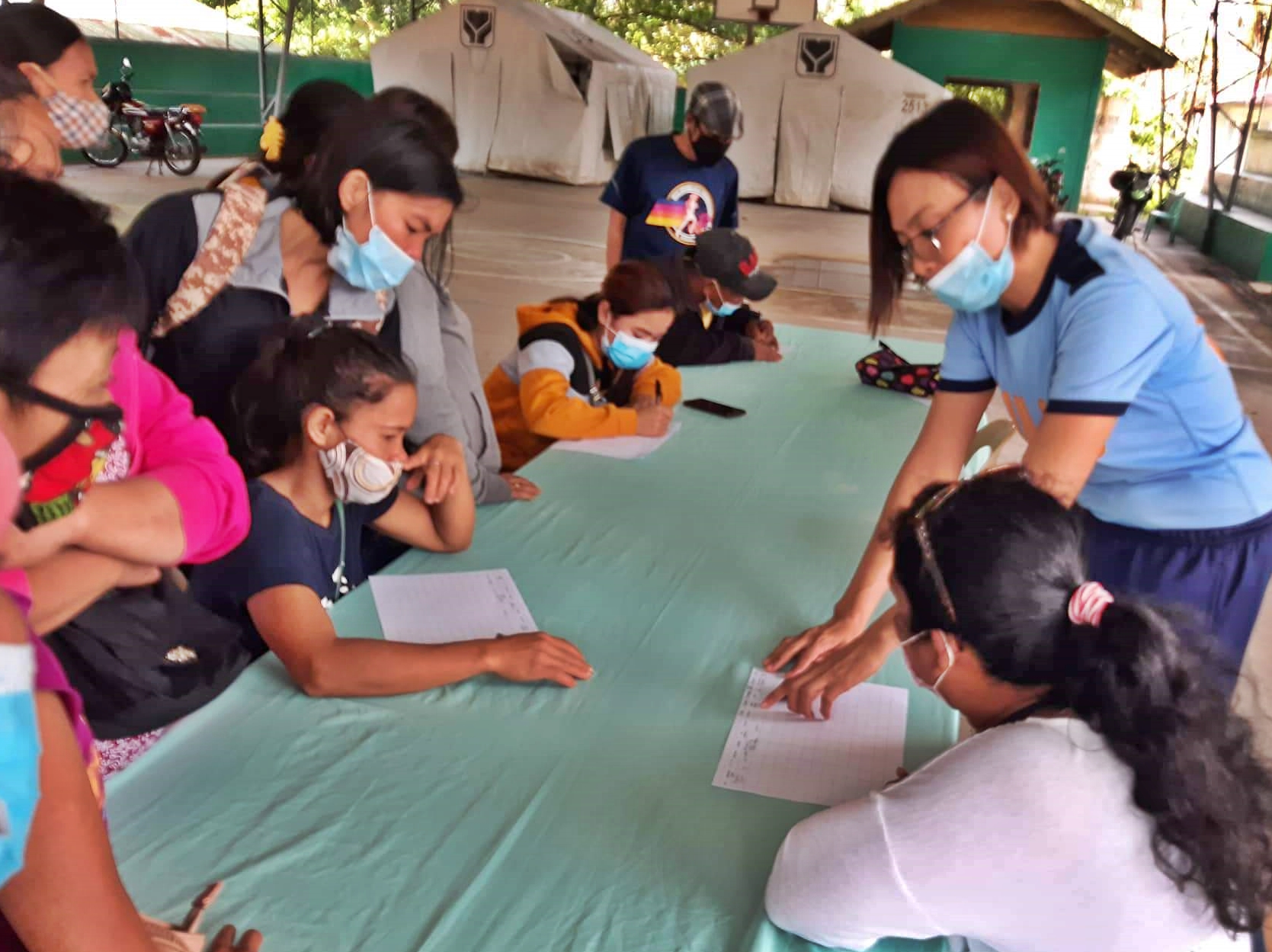
“I also put myself in their (survivors’) shoes. What if the crime happened to me or to my child? So, when I receive a complaint, I immediately act on it. I do not put it off. Even on times I was on leave, I would respond when duty calls. Otherwise, I’d be disappointed in myself and feel like I’m letting others down.”
She noted that the police force has welcomed more women to its ranks and recognises their distinct contributions and needs.
“There are now more women in my police station compared to a decade ago,” she said. “They are assigned in the women and children’s protection desk; community relations desk; and family, gender and development sections. I don’t see any discrimination because the tasks the women officers are assigned to correspond to their expertise. And these tasks are more convenient for them, time-wise.
“Women are not necessarily kept from other tasks like patrolling and intelligence, but they have to be able to endure the lack of sleep and days of not being able to go home. Some women police officers cannot afford to do that because they have children.”
Moving up the ladder is also not an issue. Shiela May was recently promoted to police captain, and she said promotions in the force are meritbased. Female police officers have as much chance of advancing as their male counterparts as long as they perform well.
Meantime, she said most members of the community welcome the presence of female police officers.
“I think some people in the community see policewomen as more approachable, as motherly, so they tend to speak more freely,” she observed. “They know we are very accommodating and we listen more intently to their problems. They see women as ‘experts’ when it comes to laws on the protection of women and children, including the anti-rape law.”
But there are a few holdouts. Shiela May recalled an occasion when a community leader was openly sceptical.
She related, “I was included in the Revitalized Pulis sa Barangay programme. I was assigned to a geographically distant and remote area. Law enforcement officers were sent there to find out what the community needs, so we can link them to government agencies that can help them.
“During our meeting with the barangay chairman and councillors of that community, when I introduced myself as the team leader, there was one person who scoffed, “ay, babae man [oh, it’s a woman]. Maybe he thought I was incapable of doing the work. I just shrugged it off and told myself I would prove to them that I’m competent.
“Eventually, our team established a daycare centre in one purok [zone] and a children’s mini-library in another purok in the community. We also helped community members start income-generating activities. For example, since the community is situated along a mountain trail and gets a lot of foot traffic from hikers and tourists, we helped them build three buildings of ‘pay toilets’ situated in different areas, and a tourist hub with three huge rooms that can accommodate 10 visitors. With the help of the stakeholders, we were also able to install numerous solar lights in areas with no electricity and those nearby dangerous cliffs. We helped them form a people’s organisation, registered it with the Department of Labor and Employment and the Bureau of Internal Revenue, and linked it to the Technical Education and Skills Development Authority. Because of these, many livelihood opportunities opened for them.”
Shiela May said that she eventually earned the trust of the community, including the sceptics, “because they saw the quality and impact of our service.”
Her exemplary police service has some trade-offs. Sheila May said balancing work and home life is challenging, with her three young children, ages 14, 13 and 8 at home with her. Sheila May’s husband, also a police officer, is posted in another part of the country.
“It is a struggle to give a hundred per cent of yourself to your job because I am also a mother. I also need to give time to my children. There were times when they said, ‘I wish you’re a teacher so we’re always together,” Sheila shared.
“To spend time with my children, I would sometimes swap schedules with other police officers. Whenever I’m off duty, I devote all my attention to them.
“Police officers do not have a fixed schedule, so I taught my children early on how to manage the household without me. They know how to prepare meals, do the laundry, how to care for their youngest sibling, and who to contact during emergency. I also talk to them, tell them that there are times I cannot be with them or attend to their needs right away.”
Sheila May has taken a pragmatic approach to managing stress. To nip possible stressors in the bud, she plans ahead and manages her time well.
Having a sounding board is also necessary to cope with stress. “My husband is the one I turn to for all my problems,” she said.
Still, she believes that psychologists should be on hand to help police officers deal with their problems.
She noted, “I think it would help if the police officers’ mental wellness is prioritised. Many of them experience burnout. They need someone to talk to. In our province, we don’t have available psychologists.
“Male police officers, especially, rarely divulge what’s troubling them. There are incidences of suicide among police officers. Police officers should have a professional they can talk to for advice so they don’t resort to suicide.”
Shiela May also believes that police officers will be better off if they can be allowed to work in stations near their residence. “It will lessen the amount of time and money spent on travel. It will enable them to take care of their family and work at the same time,” she said.
After overcoming various adversities in life, Shiela May feels ready to tackle any challenge that comes her way head-on.
“Quitting is not in my vocabulary. If there was a time in my life that would’ve pushed me to the limit, it would’ve been during my childhood. But I didn’t give up. Nothing will surpass that kind of pain, so I can’t think of anything now that will make me want to quit.”
The views and opinions expressed in the text belong solely to the interviewee and do not reflect the official policy or position of ASEAN.




